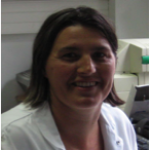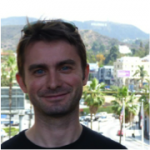About
Sleep difficulties are a major concern for families with ASD, but are often considered as an epiphenomenon, and therefore do not catch the attention of the medical and scientific community. In 2008, we reported genetic and biochemical alterations of the melatonin pathway in individuals with ASD. We identified mutations of ASMT, coding for the last enzyme of the melatonin synthesis pathway, in a subset of individuals with ASD. Following these results, we developed new tools to study the ASMT protein by purifying the recombinant human protein, producing antibodies with high affinity and resolving its crystal structure. We also screened for mutations in the melatonin receptors MTNR1A, MTNR1B and GPR50 and identified pathway-biased and deleterious mutants in individuals with ASD and in the general population. We then extended our screening to individuals with Attention Deficit/Hyperactivity Disorders (ADHD) and patients with intellectual disability. In all populations, we could detect deleterious mutations associated with functional alterations of enzyme/receptor activities. However, there was no significant enrichment of deleterious mutations in the clinical populations compared with the general population and the impact at the clinical level is still not fully understood. In this line, we continue to explore the mechanisms leading to melatonin deficit using complementary approaches such as genetics, epigenetics and biochemistry.





